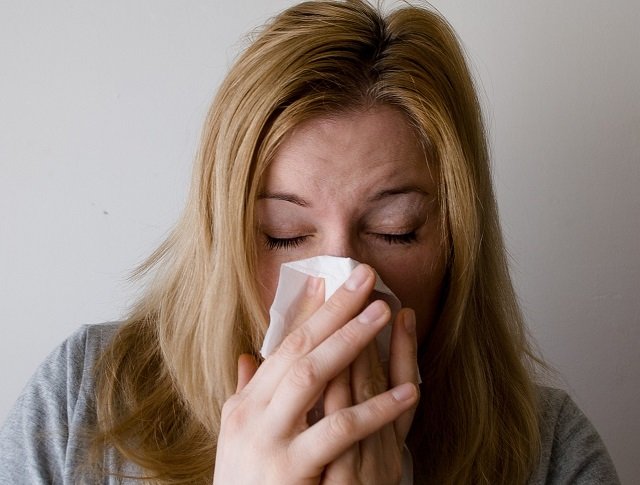
As spring is coming, more people experience seasonal allergies.
Seasonal allergies are also called “hay fever”. They are allergy symptoms that happen during certain times of the year.
For example, when outdoor molds release their spores and trees and grasses release tiny pollen particles into the air, people may experience allergic symptoms.
The condition is a significant issue in the U.S. and affected almost 20 million people over 18 years old in the United States last year.
But many people try to suffer through with no treatment.
Dr. Sanjiv Sur, senior faculty in immunology, allergy, and rheumatology at Baylor Baylor College of Medicine, provides information about managing seasonal allergy symptoms and the best methods to combat them this year.
The most common symptoms of seasonal allergies include congestion, sneezing, runny nose, and itchy, watery eyes.
The most common treatment for the symptoms is using over-the-counter intranasal steroids (nasal sprays), oral antihistamines or allergen immunotherapy.
The researcher suggests that the best method is the intranasal steroids.
This is because the nasal sprays across the board work on all nasal symptoms. They can relieve congestion and itchiness in the nose.
For itchy eyes, people can use a non-drowsy oral antihistamine like cetirizine or fexofenadine.
If symptoms continue after using steroid nasal sprays, patients need to visit a doctor for allergen immunotherapy.
There are two kinds of immunotherapy to improve your body’s ability to tolerate environmental allergens without causing allergy symptoms.
People should also make sure allergies don’t affect your sleep quality, work performance, and overall health.
It is important to remind family, friends, and colleagues that there are simple ways to treat their symptoms.
Copyright © 2019 Knowridge Science Report. All rights reserved.



